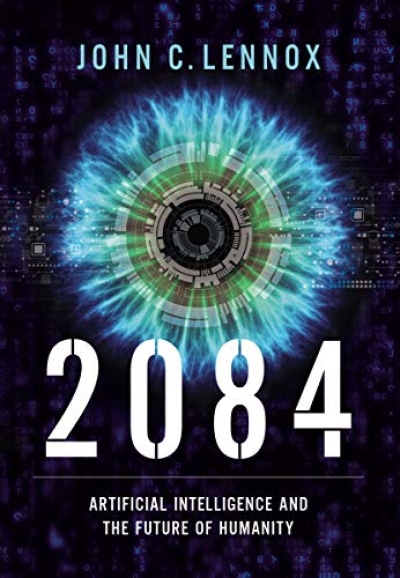AI has been in the news recently with the launch of ChatGPT; an interactive internet-based tool that can be used to mine its extensive information archive.
This is the first time this form of AI has been available to the public though it has been in development since the start of computer technology, and in a sense before that as Artificial Intelligence is essentially trying to mimic or help human thought processes – so an abacus is a tool of this sort, or any sort of written information. Digital processing and storage of images and text put this in a completely different league but at its heart AI is still a human-written computer programme, processing data.
AI is used extensively by internet search aids like Google, Bing etc both in analysing webpages and in working out what it is we’re looking for in order to create credible results (and attract advertising, the lifeblood). It is also used for generating marketing and research. A key part of it is natural language processing both to ‘understand’ query text and to compose replies.
ChatGPT is oversubscribed now but I asked a related product, you.com, to review ‘2084’.
This was the reply:
John Lennox’s book ‘2084 - Artificial Intelligence and the Future of Humanity’ is an insightful exploration into the potential impacts that artificial intelligence could have on humanity. The book provides a comprehensive overview of AI, examining its current capabilities and how it might shape our future. It also delves into ethical considerations surrounding this technology, as well as possible solutions to mitigate any negative outcomes.
The first part of the book introduces readers to AI by discussing its history and current state-of-the-art technologies such as deep learning algorithms and neural networks. Lennox then moves onto exploring potential applications for AI in areas like healthcare or transportation systems before taking a closer look at some ethical questions raised by these advancements in technology including issues related to privacy, data security, job displacement etc. Additionally, he explores how humans can harness these new developments responsibly for their benefit without sacrificing safety or morality.
Overall this is an incredibly informative read with thought provoking insights from one of today’s foremost experts on artificial intelligence – John Lennox himself! He does an excellent job conveying complex topics in simple terms while simultaneously presenting both sides of each argument, which allows readers to form their own opinions about the subject matter discussed throughout his work . I highly recommend ‘2084 - Artificial Intelligence & The Future of Humanity’ if you are looking for a comprehensive introduction into this rapidly evolving field!
So my review is done! This text is true as far as it goes, but you have to ask where this comes from and what does it say and not say. The AI process may have access to the full text e.g. via a Kindle file, though I think this would be unlikely. The you.com review is not close to the dust jacket text or the précis provided on Amazon, though it might have access to other reviews.
This text is true as far as it goes, but you have to ask where this comes from and what does it say and not say.
How accurate is it? A key point is that it mentions ethics and morality but doesn't mention ‘Christianity’ (which Amazon does) and which is the underlying rationale of the text. It finishes off with a panegyric, rather typical and artificial, and the programmer throws in human-esque first person speech ‘I highly recommend…’ – although the computer cannot have a personal opinion, as it’s not a person.
The amount of money being invested in AI (ChatGPT owner OpenAI has had a $10 billion investment from Microsoft) shows the huge desire to control this area. There are a number of reasons. AI certainly helps 'knowledge workers' so there is money to be made there but ChatGPT has been shown to have a distinctive bias towards ‘progressive’ ideologies similar to Big Tech/MSM/Government censoring that we saw so plainly over Covid. There is a special social layer that filters out responses the controllers don't like, and will state untruths which when challenged it ‘apologises’ for – so it knowingly misleads, FNB! (feature-not-bug). So there are considerable dangers from disinformation.
On a broader canvas, a key part of the quest of AI is to reproduce the processes of the brain itself so we might find a way to transfer ourselves, to silicon (trans-humanism) and to be ‘super intelligent’ – that’s if the self-learning AI machines don’t beat us to it, as HAL9000 says in ‘2001: A Space Odyssey’: “I'm sorry Dave I'm afraid I can't do that” (RIP Dave...)
What is more important is what our Creator has to say; after all, He is not artificial and is beyond super-intelligence but is uniquely loving.
John Lenox unpacks these huge issues about the nature of being human, eternal life, and how likely we are to create an inhuman Armageddon. But what is more important is what our Creator has to say; after all, He is not artificial and is beyond super-intelligence but is uniquely loving. John Lennox affirms God’s creation-sovereignty and looking at Revelation, as with his book on Daniel, sees the future in God’s redemptive hands.
There may be another Babel. AI relies on the interconnection of huge amounts of data, networks and systems – perhaps there will be a different sort of confusion of languages...
To sum up, I highly recommend 2084 if you are looking for an informed Christian response to this rapidly evolving field!
'2084' is published by Zondervan and is available from Eden Christian Books for £11.99 (inc p&p).
